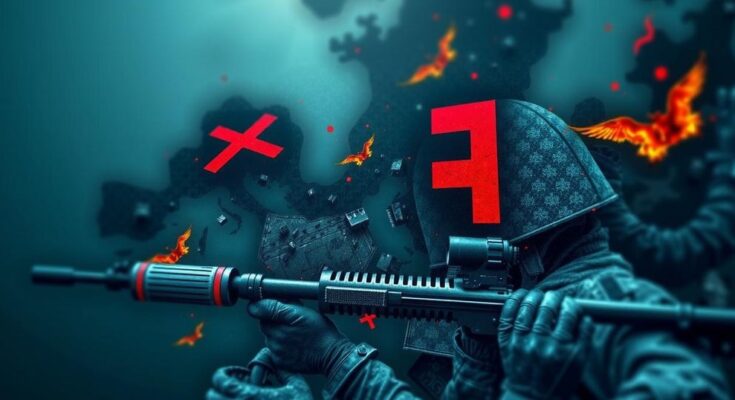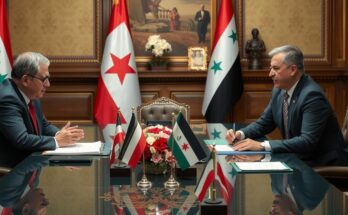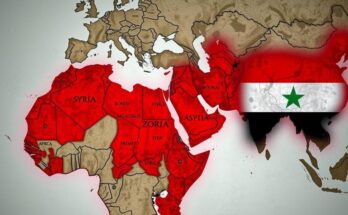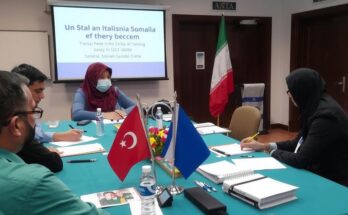Central Asian state media has largely avoided coverage of the Ukraine war, with Turkmenistan exemplifying extreme censorship. While independent media actively report on the conflict, state-run outlets minimize visibility due to fears of Russian backlash. Kazakhstan has notably expressed some independence in its statements, yet maintains a largely neutral reporting stance. The region showcases a stark contrast in media freedom between authoritarian control and efforts to provide independent coverage amid the war’s impacts.
Central Asian state media has largely remained silent regarding the ongoing war in Ukraine, reflecting a tendency reminiscent of Soviet-era information control. In countries like Turkmenistan, robust government censorship has resulted in negligible coverage of Russia’s military actions since the invasion commenced. Despite the regional repercussions, including the return of deceased soldiers to their home countries, coverage from state-run media remains sparse. In stark contrast, independent media outlets actively report on the conflict, albeit at the risk of provoking the wrath of the Russian government. Kazakhstan has managed to assert some degree of independence; it has not recognized the territories acquired by Russia during the war. However, state-controlled Kazakh media divert attention to unrelated topics, such as environmental issues abroad, while censoring significant events from Ukraine. The reporting landscape varies throughout Central Asia, with countries like Kyrgyzstan showing pockets of independent efforts to cover the war, often leading to clashes with both domestic authorities and Russian sensitivities over coverage. Media outlets in Uzbekistan and Tajikistan remain largely uninvolved, while Turkmenistan maintains a stance of neutrality, avoiding any mention of international conflicts altogether. This atmosphere depicts the profound impact of government control on media, revealing the broader implications of external conflicts on domestic narratives in Central Asia.
The context of media coverage in Central Asia regarding the Ukraine war is heavily influenced by state control and historical precedents of censorship. The legacy of the Soviet Union still looms large over many Central Asian states, where government narratives are closely monitored and regulated. Turkmenistan represents the extreme end of state-controlled media, exhibiting behaviors akin to Soviet practices. In Kazakhstan, however, there have been subtle indications of a divergence from complete silence, as some officials have made bold statements regarding territorial integrity amid the war. The strategic relationship with Russia poses challenges for government-controlled media, forcing them to navigate the complexities of public sentiment and Russian political expectations. The coverage of the Ukraine war highlights the broader tensions between authoritarian control, the quest for information freedom, and the external pressures of international geopolitics in the region.
In conclusion, the coverage of the Ukraine war in Central Asia is marked by pervasive state censorship and media control, with significant variations between countries. While authoritarian regimes like Turkmenistan suppress information outright, some nations like Kazakhstan show signs of cautious regional discourse. The independent media’s efforts to report on the conflict reveal a juxtaposition with the government’s narrative, emphasizing the ongoing struggle for media freedom in a region still influenced by its Soviet past. The complexities of governance, public sentiment, and relationship with Russia continue to shape the media landscape, revealing the delicate dance between control and information dissemination.
Original Source: www.rferl.org




